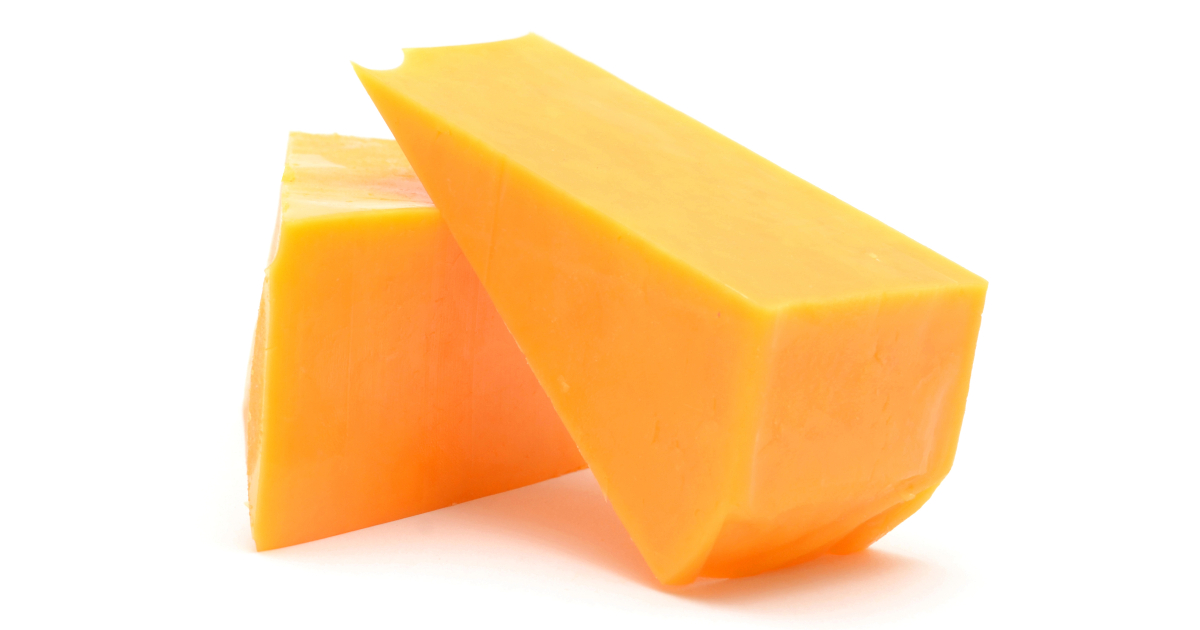Cheddar and Gouda are two of the world's most popular cheeses. Both have been produced for centuries in their regions of origin – Cheddar in England and Gouda in the Netherlands.

Today, Cheddar and Gouda remain beloved for their unique flavors and textures. But what exactly sets these two cheeses apart?
A Brief History of Cheddar and Gouda
Cheddar originated in the village of Cheddar in Somerset, England. Cheddar cheese dates back to at least the 12th century, though some accounts trace it back even earlier.
Over the centuries, Cheddar production expanded well beyond Cheddar village. Today it is the most widely purchased and eaten cheese in the world. The term "Cheddar" is not protected, so Cheddar styles are now produced globally.
Gouda was first made in the Dutch city of Gouda during the Middle Ages. Like Cheddar, mentions of Gouda cheese date back many centuries. Gouda's smooth texture and mild flavor quickly made it popular across Holland and Northern Europe.
The name "Gouda" is protected by the European Union. To legally bear the name, Gouda must be produced using traditional techniques in the Netherlands.
Flavor Profiles: Cheddar vs. Gouda
Flavor is arguably the biggest difference between Cheddar and Gouda.
Cheddar has a sharper, more pungent flavor compared to Gouda. Well-aged Cheddar often has a tangy, nutty taste profile. The aging process gives it a stronger, more complex flavor. Milder Cheddar has a buttery note.
Gouda is milder and sweeter than Cheddar. It has a creamy, buttery flavor, with caramel and nutty hints. Some varieties have a slight spiciness. As Gouda ages, it becomes more robust but still retains sweetness.
So in terms of sheer intensity, Cheddar packs more punch. Gouda compensates with subtle flavor notes. The choice often comes down to personal taste preferences.
Key Takeaway: Cheddar tastes sharper, while Gouda is milder and sweeter.
Texture and Appearance
There are also pronounced differences in the textures of Cheddar and Gouda:
- Cheddar has a drier, crumblier texture, especially when aged. The cheddaring production process expels more moisture, resulting in a denser final product. Older Cheddar may be quite crumbly.
- Gouda has a creamier, smoother consistency. It is classified as a semi-hard cheese but often remains pliable enough for slicing. This makes Gouda popular for sandwiches as it melts well.
As for appearance, traditional Cheddar is pale yellow to off-white in color. Gouda has a distinctive golden yellow interior and orange/red exterior wax rind. However, both cheeses come in a variety of hues these days including white and more brightly-colored orange versions.
Nutrition Comparison: Cheddar vs. Gouda
| Nutrient | Cheddar | Gouda |
|---|---|---|
| Calories | 115 per oz | 100 per oz |
| Fat | 9g per oz | 8g per oz |
| Saturated Fat | 6g per oz | 5g per oz |
| Protein | 7g per oz | 7g per oz |
| Calcium | 20% DV per oz | 20% DV per oz |
| Sodium | 180mg per oz | 180mg per oz |
Both cheeses are high in fat and calories since they are full-fat dairy products. Cheddar tends to be 10-15% higher in calories than Gouda.
They provide similar amounts of protein and calcium. So nutritionally, Cheddar and Gouda differ mainly in their fat and calorie content rather than vitamins and minerals.
Best Uses for Cheddar and Gouda
The unique characteristics of Cheddar and Gouda make them suited to different culinary applications:
- Cheddar works well in cooked dishes like casseroles, soups, macaroni and cheese, or cheese sauces. Aged Cheddar is often enjoyed by itself as a snack.
- Gouda is a superb melting cheese. It shines in grilled cheese sandwiches, omelets, French onion soup, and breaded/baked dishes where its creamy texture stands out. Gouda also makes a crowd-pleasing addition to cheese plates.
So in terms of melting ability, Gouda tends to be superior. But for other applications, personal preference rules. Both bring their own strengths based on your needs.
Key Takeaway: Gouda melts especially well, while Cheddar suits cooked dishes and snacking.
Are They Interchangeable?
Can you substitute Cheddar for Gouda or vice versa? Yes, in most recipes, but expect some differences.
Swapping in Gouda will make a dish melt more readily and have a milder flavor. Cheddar will give food a sharper bite and likely brown better. For best results, swap by weight instead of volume to account for moisture and density discrepancies.
Other possible substitutes for Cheddar or Gouda include:
- Colby
- Monterey Jack
- Edam
- Emmental
- Havarti
- Gruyère
While no other cheese perfectly replicates Cheddar or Gouda, several alternatives can approximate the overall eating experience.
Cheddar and Gouda: How Are They Made?
Cheddar and Gouda undergo similar initial cheesemaking steps:
- Warm milk
- Add bacterial culture
- Mix in rennet to coagulate milk
- Separate curds and whey
- Cut curds; expel whey
After this point, their production diverges:
Cheddar:
- Curds stacked and flipped repeatedly to remove moisture in process called "cheddaring"
- Curds milled when pH drops to target acidity
- Salted, pressed into blocks, aged from 2 months to 2+ years
Gouda:
- Curds washed in warm water instead of cheddaring
- Pressed into wheels, soaked in brine for flavor
- Waxed or plastic-wrapped for aging duration from 1 month to 1+ years
So Gouda relies more on brining while Cheddar uses extensive moisture removal to achieve their differing textures.
FAQs
What's the difference between Cheddar and Gouda?
The main differences are flavor, texture, color, and best uses. Cheddar is tangy and dry/crumbly while Gouda is mild, sweet, and creamy. Cheddar works well in cooked dishes and snacks; Gouda excels at melting.
Why does Cheddar taste sharper than Gouda?
Sharpness in cheese comes from longer aging which gives lactic acid more time to develop flavor. Cheddar undergoes extra steps like stacking/flipping curds to remove moisture and intensify taste. Gouda's washed/brined curd method retains more moisture for a milder cheese.
Can you substitute Cheddar for Gouda?
Yes, Cheddar and Gouda can typically substitute for one another thanks to their semisoft textures, but expect some differences. Gouda will lend more creaminess; Cheddar gives a tangier flavor. For best results, swap them by weight, not volume.
What cheese is most similar to Gouda?
Edam cheese makes a good mild substitute for Gouda. Young Manchego also approximates Gouda's sweet, nutty quality. For melting ability, Fontina or Monterrey Jack work well. Havarti and Muenster also share a supple texture.
Is Gouda healthier than Cheddar?
Gouda is slightly lower in fat and calories than Cheddar, but only by about 10-15%. Both provide ample protein and calcium. From a health standpoint, they are broadly similar - choose based on taste preference and your dietary needs.
Conclusion
Cheddar and Gouda share semihard textures but differ notably in sharpness, sweetness, and melting prowess. Cheddar skews tangy, dry and crumbly after "cheddaring". Gouda remains mild, sweet and sliceable thanks to curd washing and brining.
Their unique attributes make each cheese better suited to certain dishes. Cheddar works well mixed into cooked foods or eaten plain. Gouda excels when melted in sandwiches, omelets or soups.

